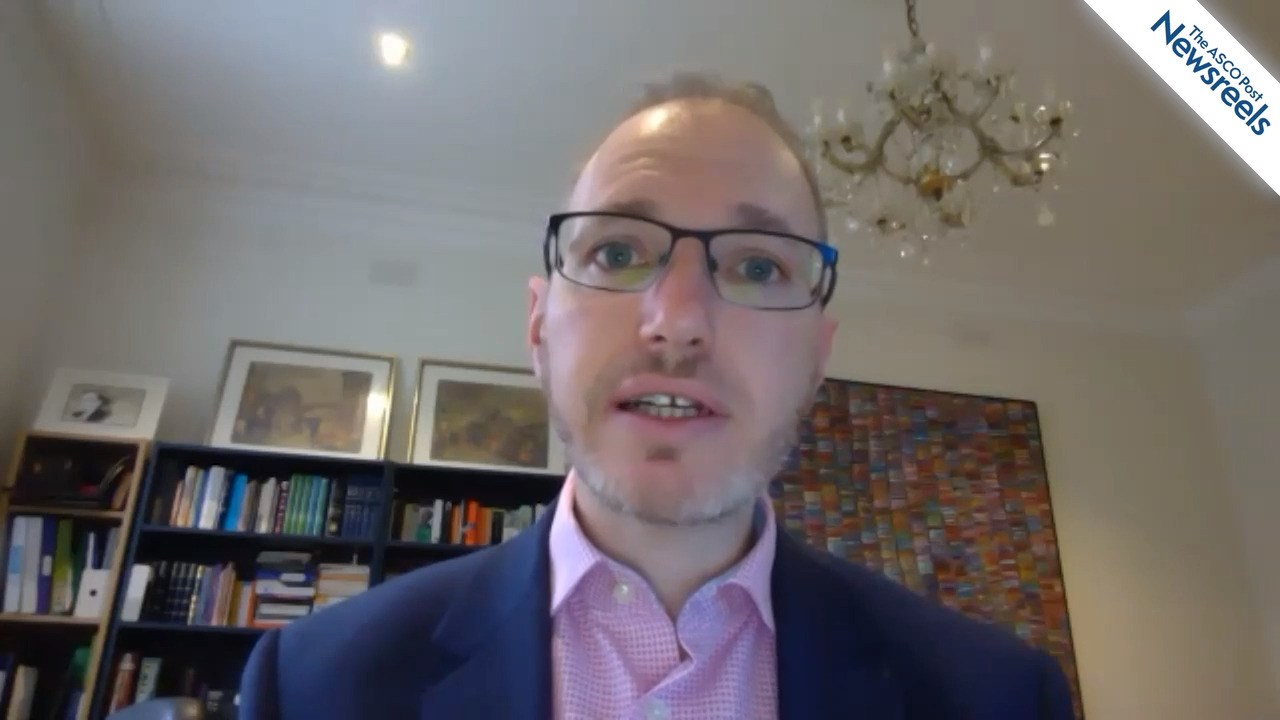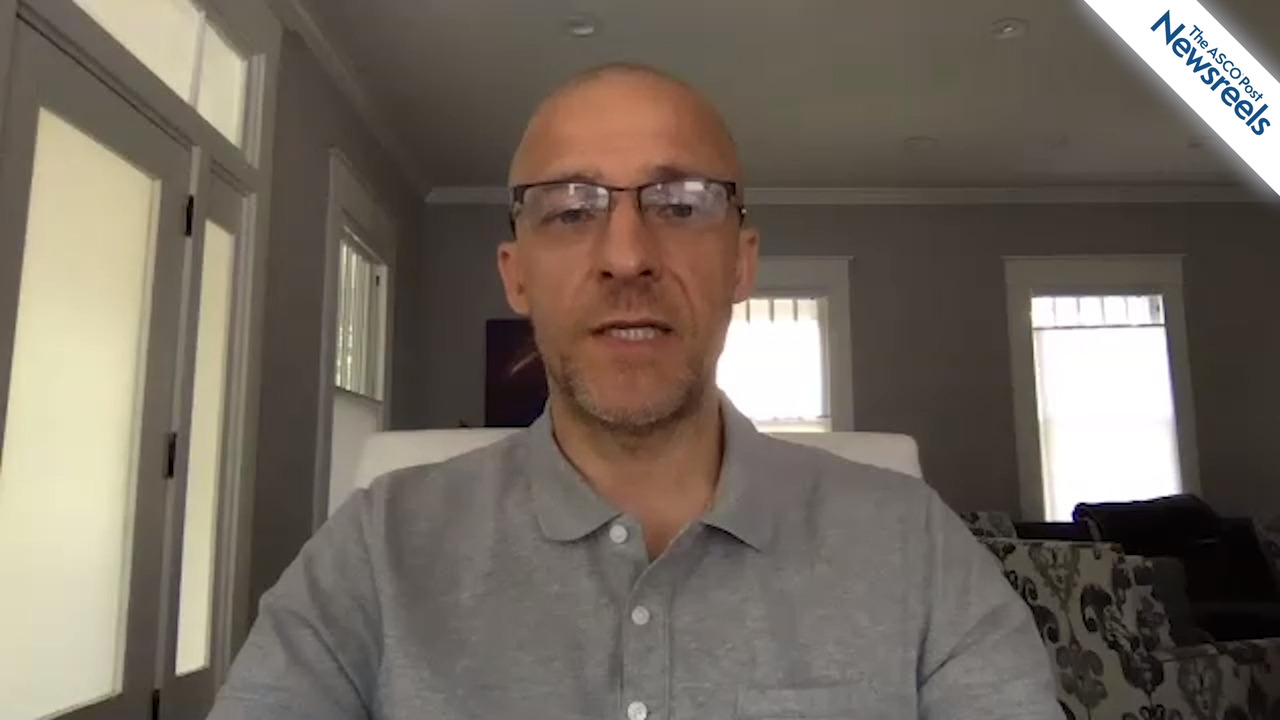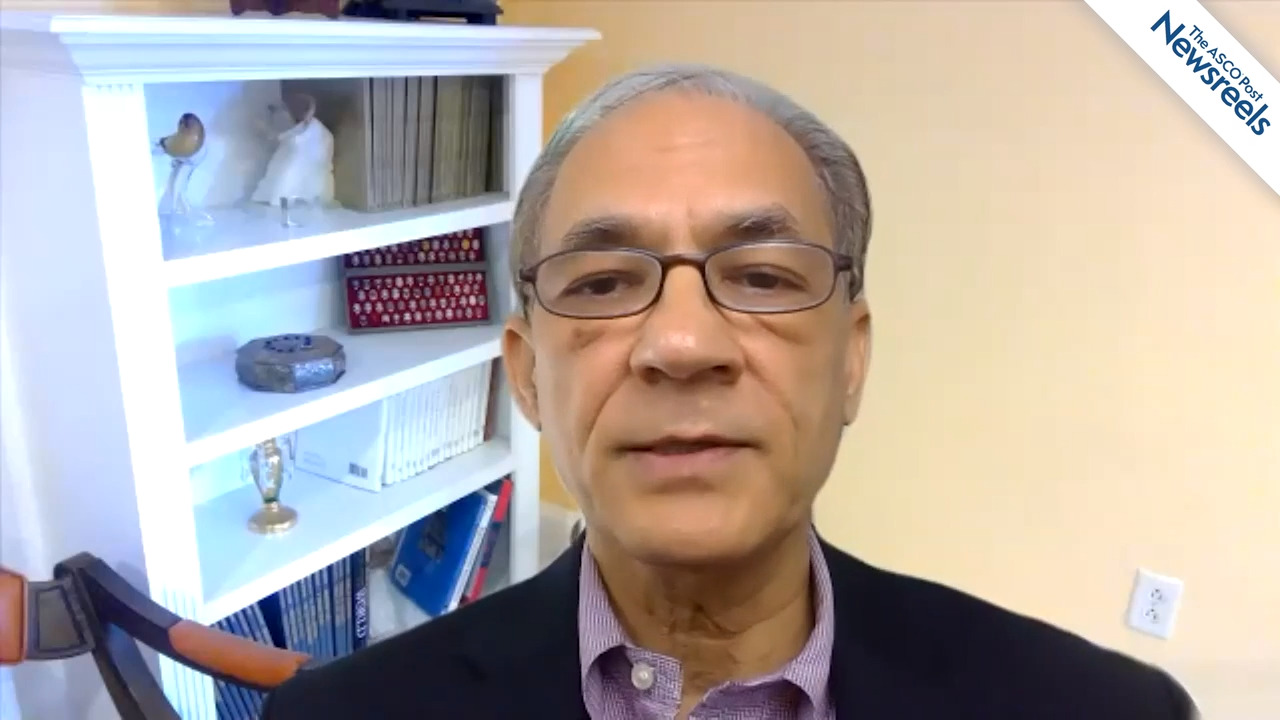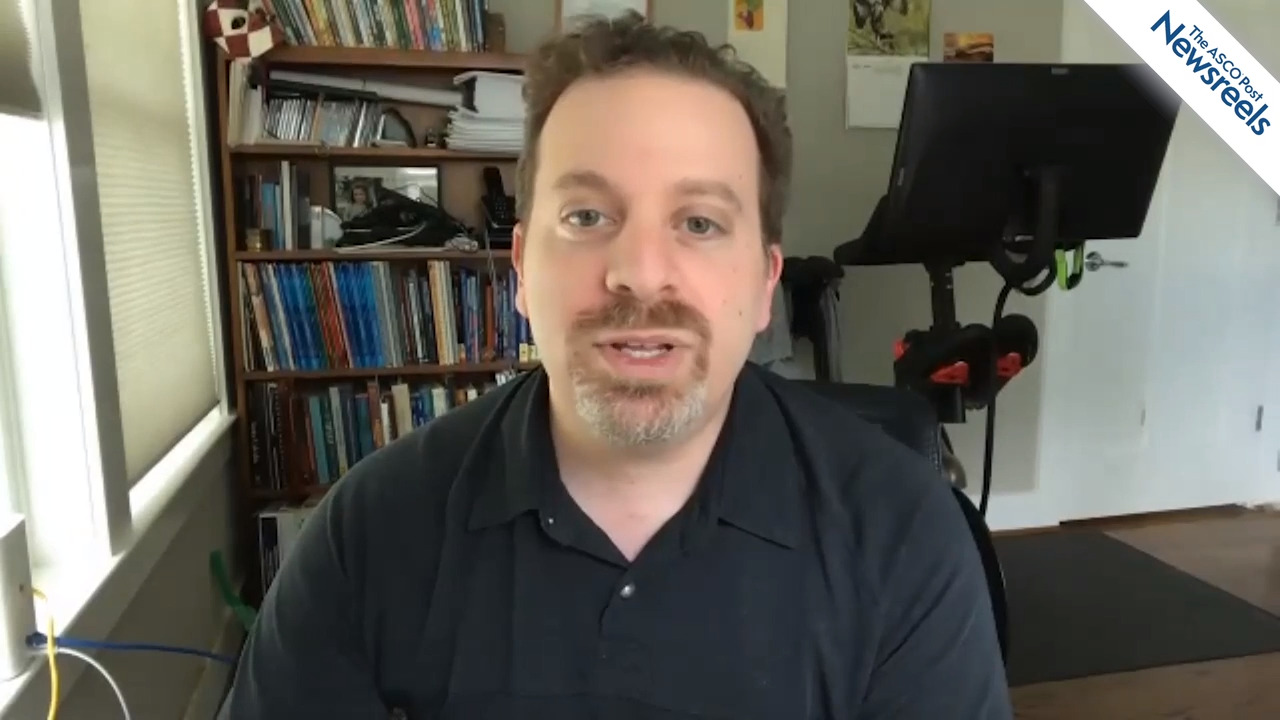Fatima Cardoso, MD, on Breast Cancer: MammaPrint as Guidance for Adjuvant Chemotherapy
ASCO20 Virtual Scientific Program
Fatima Cardoso, MD, of Lisbon’s Champalimaud Cancer Center, discusses the long-term results of MINDACT, a large prospective trial showing the clinical utility of the 70-gene signature MammaPrint for adjuvant chemotherapy decision-making. The primary distant metastasis–free survival endpoint at 5 years continued to be met in chemotherapy-untreated women with clinical-high/genomic-low risk disease (Abstract 506).
The ASCO Post Staff
Michael S. Hofman, MBBS, of the Peter MacCallum Cancer Centre, discusses phase II results from the ANZUP 1603 trial, which showed that in men with docetaxel-treated metastatic castration-resistant prostate cancer, LuPSMA was more active than cabazitaxel, with relatively fewer grade 3 and 4 adverse events and a more favorable PSA progression-free-survival (Abstract 5500).
The ASCO Post Staff
Eric Jonasch, MD, of The University of Texas MD Anderson Cancer Center, discusses phase II study findings on the oral HIF-2α inhibitor known as MK-6482, which showed efficacy and tolerability in patients with Von Hippel-Lindau (VHL)–associated clear cell renal cell carcinoma as well as responses in other VHL-related lesions (Abstract 5003).
The ASCO Post Staff
Tingyan Shi, MD, PhD, of Zhongshan Hospital, Fudan University, discusses study results that showed secondary cytoreductive surgery in selected patients extended progression-free survival and might contribute to long-term survival (Abstract 6001).
The ASCO Post Staff
Nikhil C. Munshi, MD, of Dana-Farber Cancer Institute, discusses initial results from the KarMMa tria, showing that idecabtagene vicleucel, a B-cell maturation antigen-targeted CAR T-cell therapy, demonstrated deep and durable responses in patients with heavily pretreated relapsed or refractory multiple myeloma. Efficacy and safety data support a favorable clinical benefit-risk profile across the target dose range (Abstract 8503).
The ASCO Post Staff
Jeremy L. Warner, MD, of Vanderbilt-Ingram Cancer Center, discusses data from the COVID-19 and Cancer Consortium cohort study, which included patients with active or prior hematologic or invasive solid malignancies, reported across academic and community sites (Abstract LBA110).





